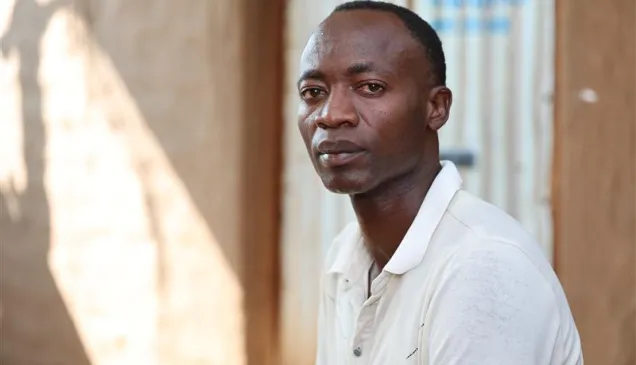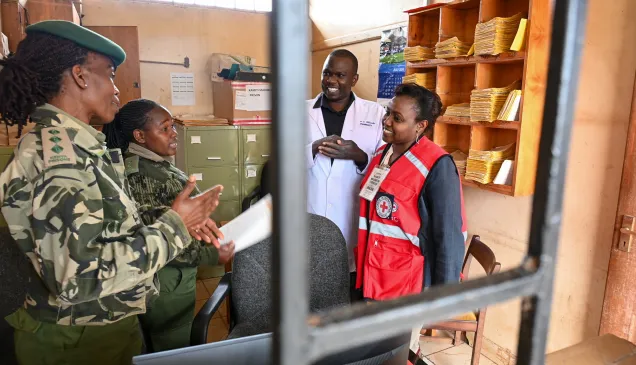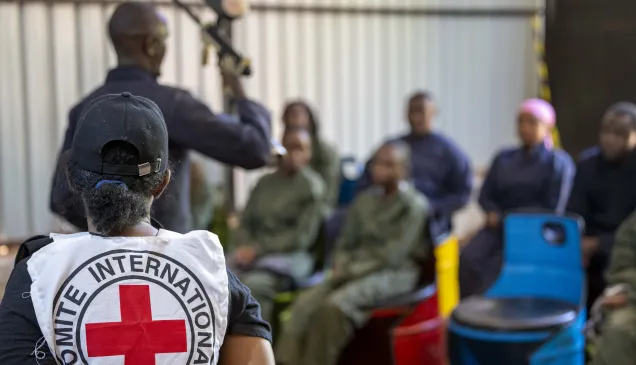Reuniting separated families in Western Tanzania
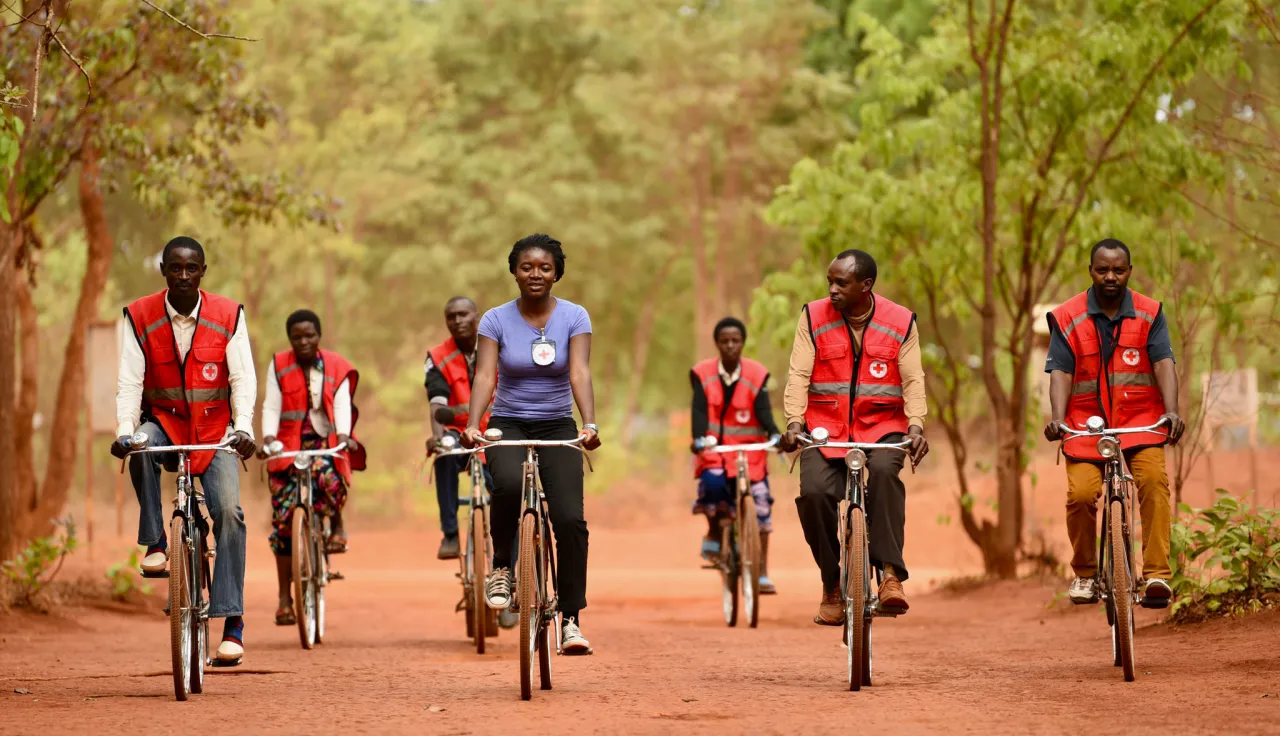
By Mike Mina & Ene Abah
We take a lot of things for granted. Sometimes, it's the people we love. But that is not the case for the people who were separated from their families when they left Burundi for Tanzania.
There might have been a time that they did not fully appreciate what they had until they were forced to flee from their homes, separating their families in the process.
The Tanzania Red Cross office, at Mtendeli refugee camp in western Tanzania, is a buzz of activity. The teams responsible for finding and reuniting families are busy with logistical arrangements, making calls, doing paperwork, packing belongings, firing up engines, and even more paperwork. Everyone is busy.
After months of searching, the day has finally come for three Burundian families to be reunited with their loved ones after about three years apart. Having come at different times, they ended up in different camps and were unaware of each other's whereabouts. Western Tanzania hosts approximately 300,000 refugees, mostly Burundian and Congolese, in three camps – Mtendeli, Nduta and Nyarugusu.
One of the families is a group of five: an elderly mother, her daughter, and three grandchildren. The daughter was separated from her children and mother. She was living in Nduta, while the rest were in Mtendeli, along with another elderly woman who lived with them.
The other two families are young children who were separated from their respective parents. Both were living in Mtendeli while the parents were in Nduta. After months of searching, we have finally found their parents and are on a mission to reunify them.
We go to pick up the seven of them from their houses in Mtendeli. Houses there are made of bricks, and the soil is thick and red and can get extremely muddy when it rains. The air is fresh and crisp. Birds are chirping in the surrounding trees and the environment has an energetic aura, albeit with tales of despair and hope.
The awkward journey
Inside the car, there's an awkward silence. Everyone is staring at the green hills surrounding Mtendeli as the car speeds off on the dusty road for the 40 minute ride to Nduta. Our heads bob in different directions every time we hit a pothole, occasionally forcing us to make eye contact.
During the trip, I ask myself how they must be feeling knowing that they will finally see their loved ones again. I am excited, but I'm unsure of how to express it.
I make eye contact with one of the elderly women who has not said a word since we left their house. I had said, "Hi" to her before but she walked past me, without responding. I wonder why. In the car, I notice she keeps glancing at me and I try to figure out how I can start a conversation after she ignored me from the very beginning. I'm about to say "Hello" to her again but hesitate.
I quickly look away and smile at two young children and think of how anxious their parents must be. The silence in the car continues, the only sound being that of the engine as the driver changes gears.
Coming from an expressive African culture, especially when it comes to 'events', I was expecting some laughter, smiles, or even singing as we headed to Nduta. I am mistaken. After another glance at everyone, I realize that the emptiness and uncertainty of living as refugees is still visible on their faces.
I think of my grandmother for a while and finally, gather up the courage to speak to the elderly lady. ''How do you feel now that you are going to see your daughter again after three years of not knowing where she was?'' I ask.
She looks right past me and says nothing. I feel bruised. Maybe she does not like me for some reason.
Another lady notices the awkward moment and tells me that the lady I'm talking to is deaf and unable to speak. My heart sinks. How did this elderly woman cope with not being able to hear or speak in a refugee camp? What did she do to deserve all that?
The reunification
Forty minutes later, we arrive at Nduta and converged at the Tanzania Red Cross office to plan on how to take them to their respective families.
We start by reuniting the family of five.
We then follow Keve, a four-year-old boy, who is reunited with his mother. Keve does not know that he has a younger brother. His younger brother starts to cry when he sees his mother run and embrace another child. I silently wonder how the relationship between Keve and the younger brother will be. How they will have to adjust to each other's presence, both wanting their mother's attention.
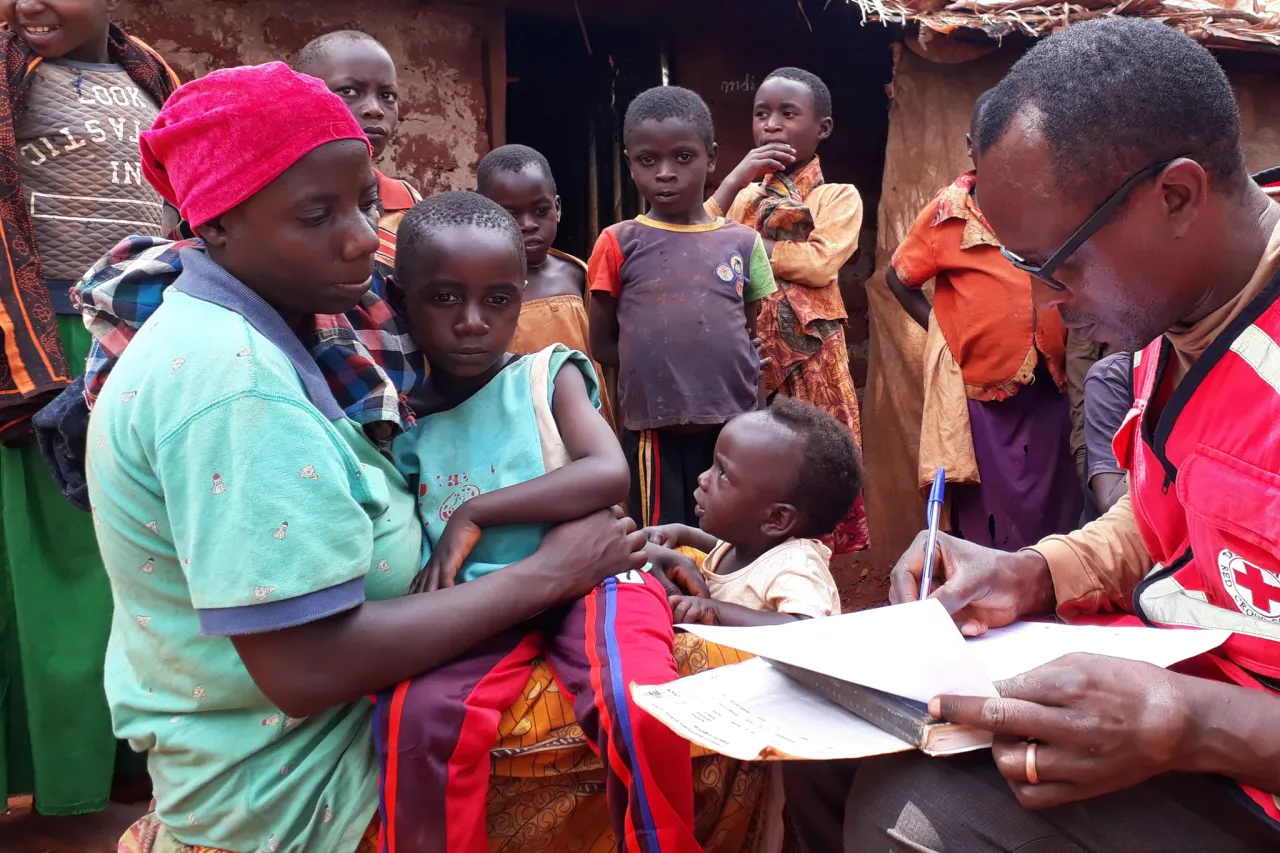
About 400 babies are born in the refugee camps every month. The children living in the area crowd around us with curiosity in their eyes. They are probably wondering who the child we brought is.
After Keve is reunited with his mother, we go to reunify Prencia, a four-year-old girl, with her mother.
According to Ene Abah, the ICRC Restoring Family Links delegate in our office in Kibondo town which is near the camps, the most rewarding part of her job is when a family is reunited.
''The emotions and the reactions are always priceless," she says. "It is impossible not to share in their joy. This might be work but seeing the work you've done yield fruit is a great feeling. Hearing stories of family separation is something difficult that I could never get used to. Working with refugees and displaced people who have experienced this makes me more conscious of how this could happen to anyone. I learn daily from them. Their dedication to working is incredible.''
Working to reunite families has helped Ene appreciate how one's action like memorizing a phone number or teaching children their parents' full names, phone numbers, and house addresses could make a huge difference.
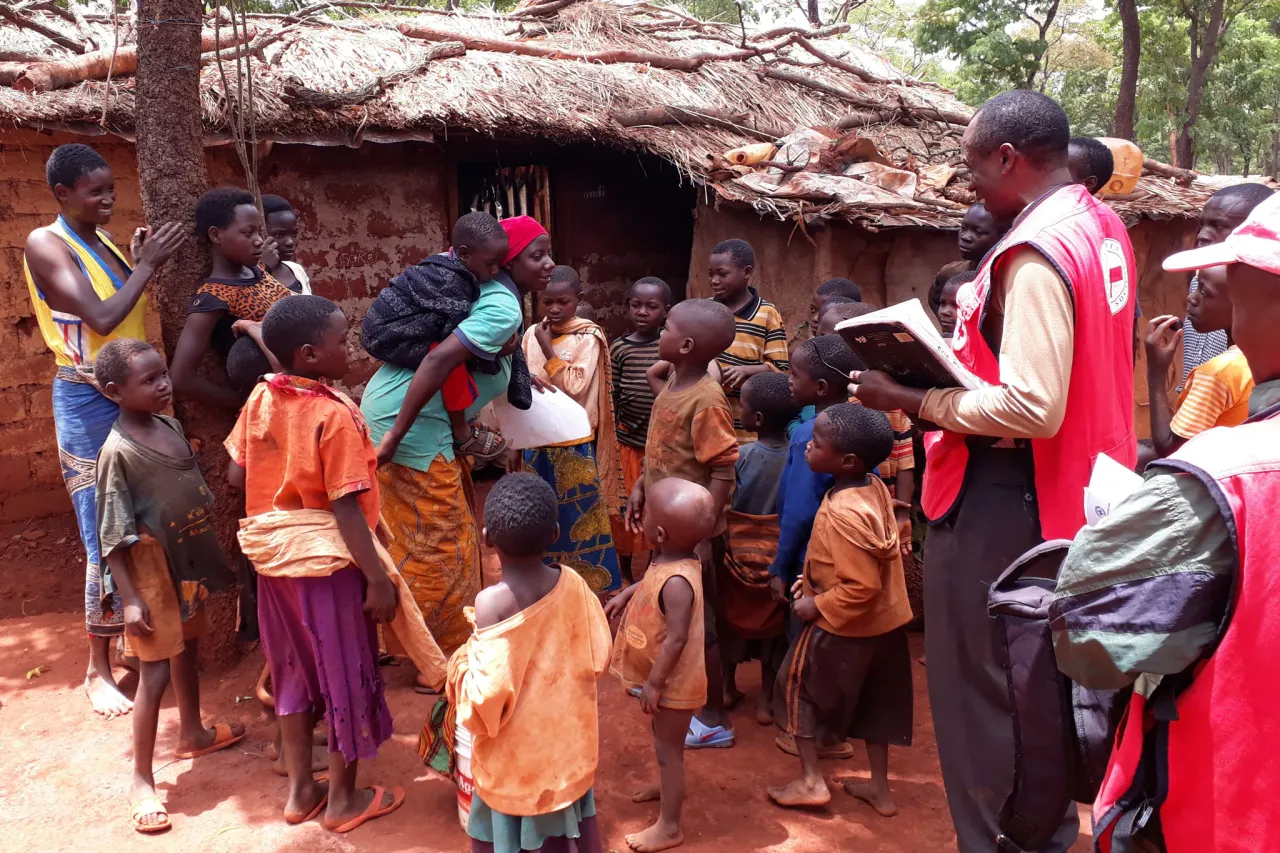
How do we find separated loved ones?
The ICRC provides financial and technical support to the Tanzania Red Cross to make this happen. Together, we hold sessions and print posters that share information about the work that we do.
People looking for their loved ones visit the Tanzania Red Cross offices in the camps to find out how we can help. We register them by taking all the information we can. Details of where the missing person was last seen, where they lived, and any friends that might have been contacted – anything at all that could help with the search. We then use our Red Cross network to search for them. If we find them, we then work to reunify them, like in the case of these three families in western Tanzania.
I had mixed emotions as I got to bed that evening. I remembered the golden sparkle in Cecilia's eyes when she touched her daughter's face one more time. I remembered the elderly woman who could not hear or speak while the rest of the family were deep in chatter and laughter out of the joy of being together again. I heard Keve's one-year-old brother crying for attention when he saw his mother embracing another child.
Despite all this, I felt a great sense of satisfaction, a wonderful feeling which binds our colleagues around the world who work tirelessly each day to reunite loved ones who have been separated by conflict.

